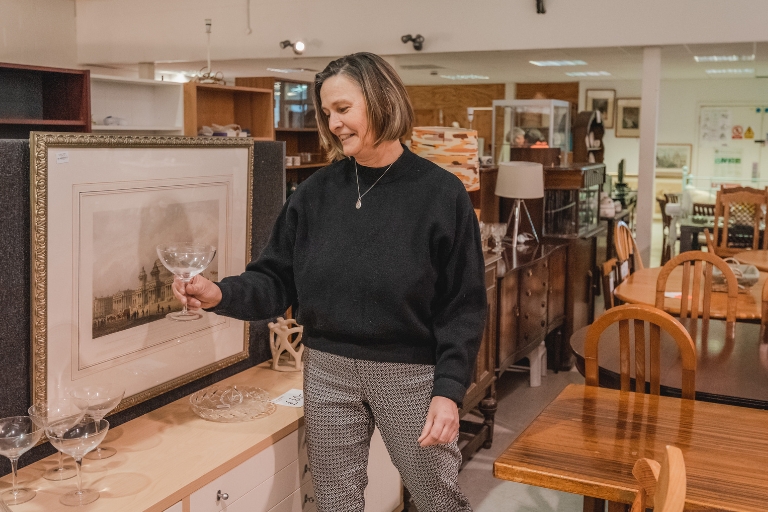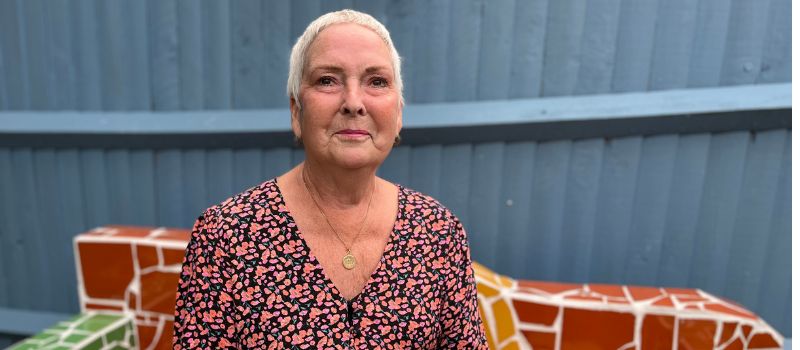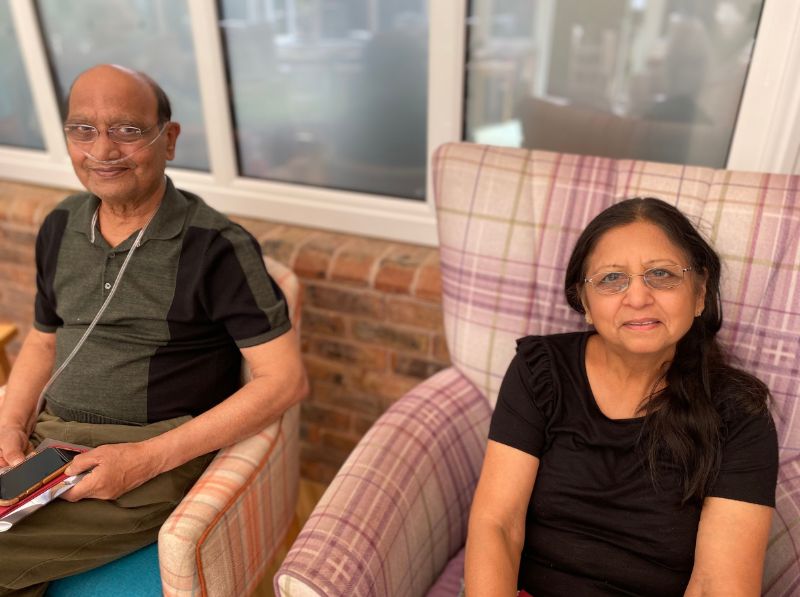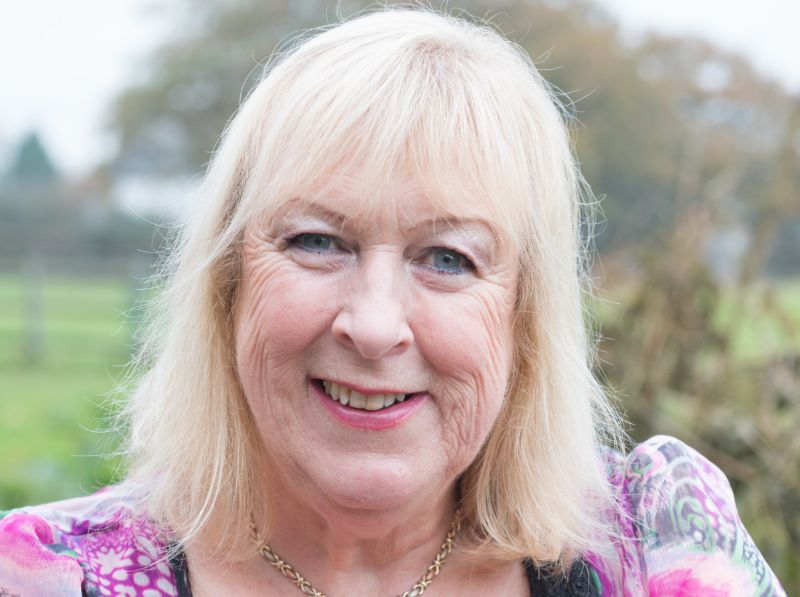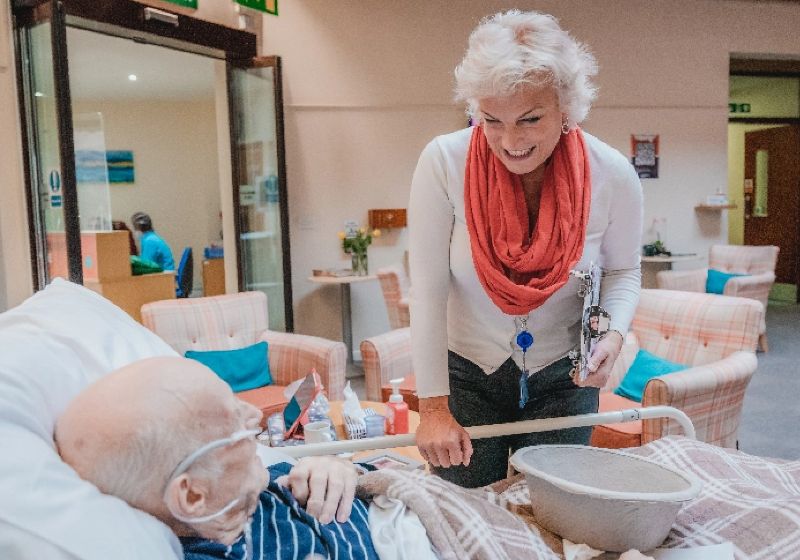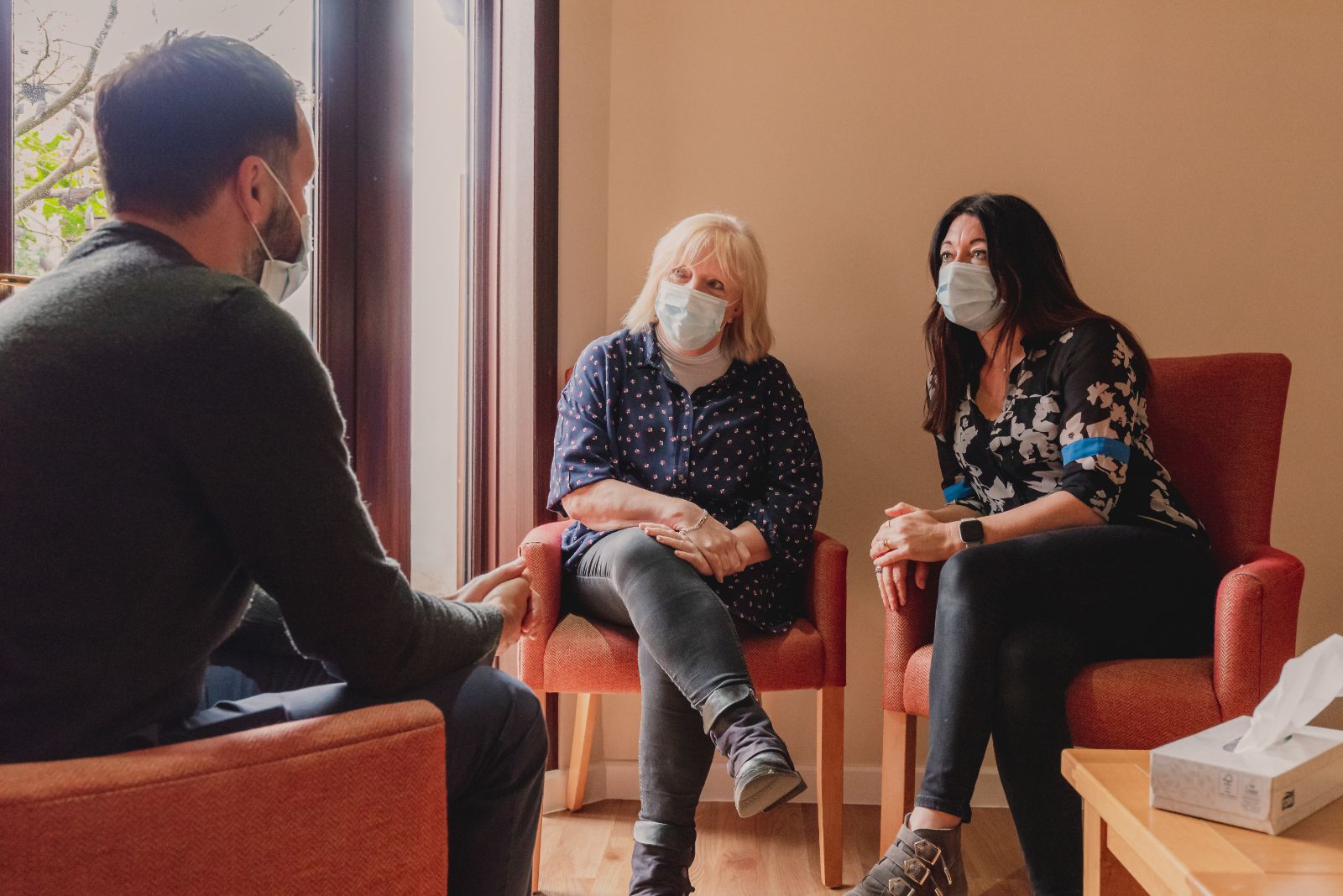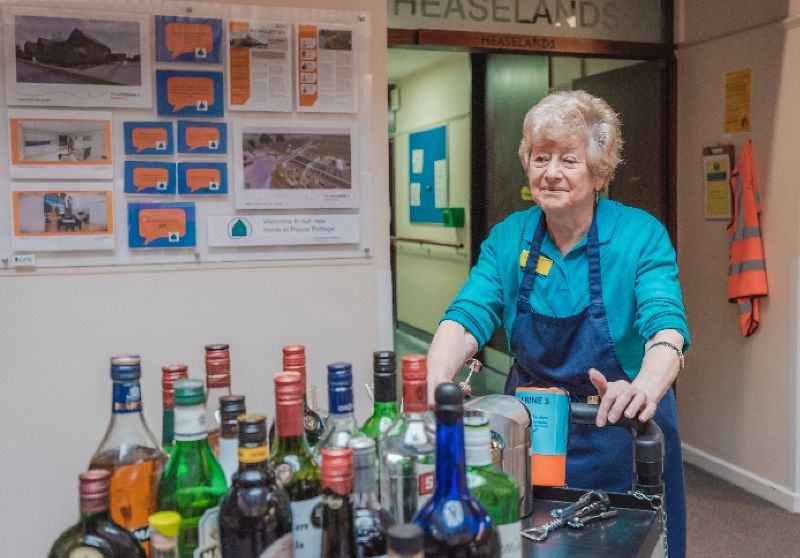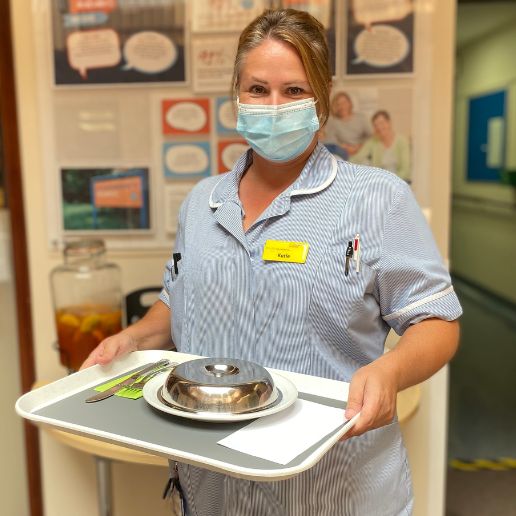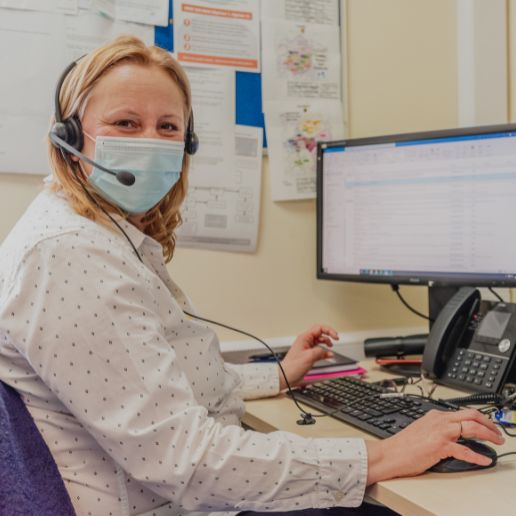“The hospice isn’t a death sentence, it’s life enhancing”
“I spent lockdown last year as an inpatient in the Royal Brompton Hospital. It was supposed to be a 3 day stay but due to complications I spent 4 weeks in there. Since 2017, I’ve had a rough time of it with my health. I was diagnosed with breast cancer – had chemotherapy, radiotherapy, and a mastectomy. I was just getting over that when I started getting breathless. At first nobody was sure what was causing it. I underwent lots of tests and scans etc. I was petrified, believing that the cancer had travelled to my lungs. It took doctors about seven months to work out, but then I was diagnosed with a very rare condition, Pulmonary Hypertension. There are only about 7,000 people in the UK with this disease, it affects the arteries that connect the heart and lungs. This causes extreme fatigue, breathlessness, and heart failure. I’d gone from one potentially life-threatening illness to another. There is currently no cure for Pulmonary Hypertension. It is a terminal and life limiting illness.
When I was in hospital it was a torrid time
I was on lots of different drugs to try and improve my condition, but I couldn’t tolerate them. Even so, when one of my Clinical Nurse Specialists told me “We can’t control your illness with these particular drugs, there’s nothing more we can do,” and said he was going to refer me to the hospital’s palliative care team it was a shock. I thought “that’s it, there’s nothing else available.”
When I heard the words palliative care and hospice – honestly – I was petrified. I thought “do I only have weeks to live, is that why someone from the palliative care team is coming to see me?” I felt very frightened and alone
After those initial thoughts it was so reassuring when a lady from the hospital’s palliative care team told me a referral to my local hospice could help me try to make the best of every day. She talked me through what help I could receive, and I felt very reassured, she explained things in a very calm and clear way and helped to put some of my fears to bed.
There are connotations when you hear the word hospice
My kneejerk reaction on hearing that I was getting a visit from a member of the palliative care team was “that’s it, I’m going to die,” but when I was put in touch with St Catherine’s, it wasn’t like that at all. I was asked, “What can we do to help? How can we help you make every day better, and improve your quality of life?”
The hospice hasn’t been a death sentence, it’s been life enhancing
My fears, those connotations and the stigma attached to a hospice have all been so wrong.
Coming under the care of St Catherine’s has been such a positive experience. It’s totally changed my perception and outlook on what a hospice is, what it does, and the support they give not only to patients, but family and friends too.
I feel that the hospice complements the clinical side of my treatment extremely well
It offers me a more holistic approach and an alternative to the endless treadmill of appointments with consultants.
St Catherine’s treats me as a person rather than just managing the symptoms of my illness. Their caring, compassionate help has been invaluable
Counselling has helped too
When I was asked what would help me, I asked to speak with a counsellor, and I was given six sessions over the phone. The sessions were really helpful in allowing me to come to terms with my diagnosis and let off steam.
When you are told you have a terminal illness you experience a range of emotions, fear, isolation, sadness, and anger to name but a few, it can be hard to talk to friends and family about how you are feeling as they are emotionally involved. My counsellor was brilliant and speaking to her about things I didn’t want to burden other people with was so helpful
After each counselling session I generally felt much better. It was helpful to have conversations with someone who wasn’t emotionally involved in my illness and who could be objective. My partner, Graham was pleased I could access this extra support too. I’ve been told Graham, and my daughter, Chloe can have counselling in the future if they feel either of them need it and it’s reassuring to know that support’s there.
The hospice also arranged for a physiotherapist to visit me at home
When I came out of the Royal Brompton my mobility was poor. I couldn’t get up and down my stairs so I was having to sleep downstairs. The hospice’s physio came out to see how I might manage the stairs in future and gave me some seated exercises to help with my mobility. I was also given coping strategies and breathing exercises to help with the breathlessness. He talked me through various aids that could help me at home, things that hadn’t even occurred to me, and after three visits, he still calls periodically to check everything’s okay.
I had a couple of lymphoedema appointments at the hospice too as I get quite bad swelling in my legs. The team checked the condition of my legs and arranged for things like flight socks to help.
Physically visiting the hospice was eye-opening. It wasn’t clinical like I’d expected. It was relaxed and informal. I was put at ease straight away and I didn’t feel like I was attending a medical appointment
The hospice nurses have also helped me to sort out pain relief medication
This has been a major factor in improving the quality of my everyday life. When I was worried about my diagnosis and having a difficult time dealing with it they also arranged for one of their doctors to call me. She was so reassuring and kind and after having spoken to her I immediately felt much better.
With the hospice’s help, things were improving but in September I had a big, unexpected setback
A lady who I’d got to know well after we were in the Royal Brompton together on several occasions, and who had the same rare condition as me, died suddenly. We’d joke that we were like two bad pennies, turning up and being admitted at the same time and it came as such a shock to hear she had passed away. We’d always got on like a house on fire and kept in touch in between hospital stays via Whatsapp and her death really hit me hard. Not long before she died she messaged me to say she was looking forward to being able to drive again.
She was my friend, she was 10 years younger than me, she had the same illness as me. When we were in hospital together, we could bounce off one another. It was great to be able to talk to someone with the same illness as me, she understood what it was like, when of course so few people do.
I phoned the hospice and asked if I could have some more counselling. They, of course, said yes and I had another six sessions with my counsellor. It helped so much. The hospice was there when I really needed them. They really helped me to come to terms with what had happened to my friend, and I’m very grateful.
The approach of the hospice isn’t “one size fits all”. It’s more tailored to the needs of the patient at any given time
In only a year the hospice has helped me so much
They keep in touch by phone and have made it clear to me that I can always contact the palliative care team by phone should I need to.
Things are led by me. I’m never told “you need to do this,” I decide what help and support I need. It’s not all doom, gloom and pessimism, but the hospice can help with practical things too, like claiming benefits and discussing funeral wishes, organising wills etc. It helps with the things that can feel a bit hard but are needed.
If you’re reading this and you may be referred to a hospice, I know there’s fear involved. I know the connotations the word brings up, I felt it too, but I’d encourage you to try it and see what you think.
The hospice is full of very positive people who are there to help and support you
You don’t need to feel frightened. People aren’t there to whip you in, and it’s not a place that just helps people to die. It helps you to make the best of each day and to cope with a life changing diagnosis.
The hospice is a treasure on our doorsteps
And everyone should support it. You never know when you might need the hospice personally, but more than that, it’s a wonderful community resource that offers a vitally important service to ill people and their families.
The hospice is a treasure on our doorstep for us all to be grateful for, and it relies on fundraising
Before I was ill myself, I didn’t know the full extent of what St Catherine’s did, or about the holistic, emotional support people with various illnesses can take advantage of. It was a pleasant surprise to learn that the hospice could help with lots of things. I thought they just helped people dying with cancer as that had been my previous experience.
St Catherine’s cared for my Mum
When my Mum was ill with lung cancer St Catherine’s helped my sisters and I to care for her at home, they offered our family support, and helped us get a hospital bed and aids for her home. They were fantastic for my family. Although there are four of us girls, none of us had dealt with a terminal illness before and we had no idea what we might need. St Catherine’s guided us through and supported our Mum to die at home like she wanted.
It’s not easy being told you have a terminal illness and that there’s nothing more doctors can do, but support from a hospice doesn’t mean you’re going to die tomorrow. It’s not a death sentence, it’s life enhancing.”
Our Stories
Hear from our patients, their relatives, our staff and volunteers about the care of St Catherine’s Hospice.
Or for even more stories, updates and news from St Catherine’s Hospice, why not have a read of our biannual Matters magazine?
To read the latest edition of Matters, click here.
Don’t forget to follow us on social media for our latest stories
You can find us here:
Facebook: St Catherine’s Hospice, Crawley and St Catherine’s Hospice Fundraisers
Twitter: @StCHospice
Instagram: @stcatherinescrawley
LinkedIn: St Catherine’s Hospice, Crawley


